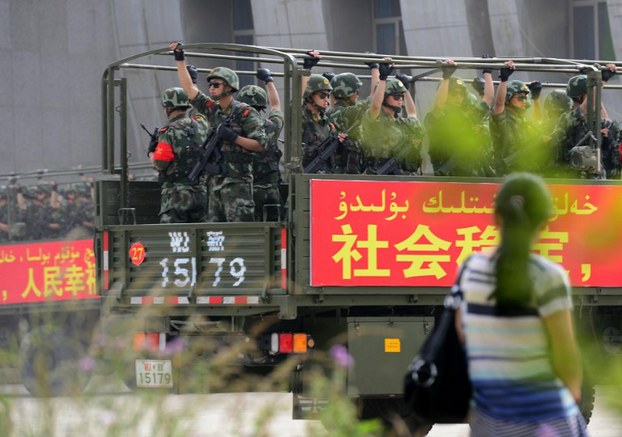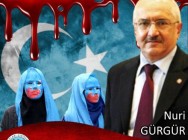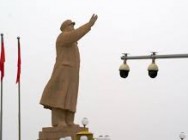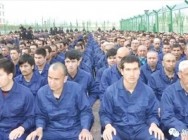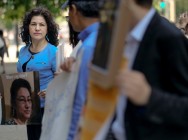Last Minute

- Conflict and Alliance: The US and China: A Centennial Dance: A Century of Relationship from 1900 to 2024
- CHINA RELATIONSEAST TURKESTAN PROBLEM AND TURKEY
- FRONTLINE China Undercover
- Elimination of “Uyghur Counter-Revolutionary Officials” in Academic Fields—Exact Quotes Translated from a Mandarin Audio File
- In Push for Trade Deal, Trump Administration Shelves Sanctions Over China’s Crackdown on Uighurs
- Dalai Lama’s 60th Anniversary Symposium: İlshat Hassan speech in English and Chinese
- Uyghur Detainees from Xinjiang ‘Placed in Nearly Every Prison’ in Shandong Province
- Shahrezad Ghayrat, Unrepresented Women
- Uighur Americans Speak Against China’s Internment Camps. Their Relatives Disappear.
- Rozinisa: The true story of the Uyghur girls in the prison

-

Conflict and Alliance: The US and China: A Centennial Dance: A Century of Relationship from 1900 to 2024
-

CHINA RELATIONSEAST TURKESTAN PROBLEM AND TURKEY
-

FRONTLINE China Undercover
-

Elimination of “Uyghur Counter-Revolutionary Officials” in Academic Fields—Exact Quotes Translated from a Mandarin Audio File
-

In Push for Trade Deal, Trump Administration Shelves Sanctions Over China’s Crackdown on Uighurs
-

Dalai Lama’s 60th Anniversary Symposium: İlshat Hassan speech in English and Chinese
Tibetans, Uyghurs ‘Blacklisted’ at Hotels in Chinese Cities
Tibetans and members of the mostly Muslim Uyghur ethnic group have been placed on a security blacklist when they seek hotel rooms in major Chinese cities, with staff informing local police stations when they try to check in, sources told RFA on Thursday.
An employee who answered the phone at a Beijing branch of the homegrown Homeinns hotel chains confirmed that the hotel would take special action if Tibetans checked in.
“We would inform the local police station, that’s all,” the employee of the Ganlu Yuan branch of Homeinns in Beijing’s Chaoyang district said.
“But there wouldn’t be a problem as long as they have their ID card.”
Meanwhile, an employee who answered the phone at the Hanting Hotel in Beijing’s Haidian district said special measures are also in place for the mostly Muslim, Turkic-speaking Uyghur ethnic group from the northwestern region of Xinjiang.
“Uyghurs can book rooms, but the police will pay a visit,” the employee said. “As soon as they register, it will all go through on the system.”
“As soon as we register their ID card, the police will come round here,” the employee said.
Asked if the procedure was the same for Tibetans, the employee said: “That’s right. Police will go to their room.”
Direct link to police
In Shanghai, an employee who answered the phone at the Changning district branch of the 7Days hotel chain said similar processes were in place there, too.
“The [Tibetan or Uyghur] person doesn’t have to go the police station themselves,” the employee said. “The details will get passed straight through to the police computer network.”
“Basically, it’s passed to the local police station.”
And in the southern city of Guangzhou, an employee at the Baogang Road 7Days Hotel said that Uyghurs would need to go through additional security checks if they tried to book a room.
“Uyghurs would need to give me their ID card number so I could run a check on it for them,” the employee said.
Asked if there was a blacklist of people banned from booking hotel rooms, the employee said: “That’s correct.”
Non-blackisted Uyghurs would still be reported to the local police station if they checked in, the employee said.
Asked about the status of Tibetans, the employee said: “It’s the same thing. After they register, their details are sent to the police for checking.”
Some Han face barriers, too
However, a Han Chinese resident of Urumqi surnamed Fang said the procedure is the same for Han Chinese residents of Xinjiang and Tibet.
“I am on holiday in Ruili, and I got off the long-distance bus at 2.00 a.m. and went to the hotel, where I gave them my ID card,” Fang said.
“As soon as they saw it was from Xinjiang, they … said they were fully booked.”
He added: “I told them I was Han Chinese, but they said sorry. Actually I had already asked them, and been told they had rooms.”
“I had nowhere to stay. Eventually I found a hotel, and they told me I had to go to the local police station,” Fang said.
“I said I came here to sleep. I’m here on vacation, and you tell me to go to the police station? I was so angry,” he said.
In the northern region of Inner Mongolia, where the authorities recently issued an arrest warrant for six Uyghur men believed to be planning an escape across the border into neighboring Mongolia, hotels have been placed on alert for Uyghurs arriving in town.
A security guard at the Soda hotel in Hailiutu township, Urad Middle Banner (in Chinese, Wulatezhongqi) under the region’s Bayannur city, said police had stepped up security since the warrant was issued.
“On May 11, the armed police came to our hotel and required us to report to them immediately if there are any Uyghurs checking in,” the guard told RFA.
“We have a directive here saying that if we receive any people with Xinjiang ID cards, we have to report them to the police,” he said.
“But they did not say that we should deny hotels for people from Xinjiang,” the guard said.
Last week, officials in Xinjiang’s Ili prefecture said they were recalling all passports from local residents, and would hold them indefinitely, to be returned only subject to background checks.
However, security measures governing ethnic minority hotel guests seem unevenly applied, with guesthouses inside the Tibetan Autonomous Region even more tightly regulated.
An employee who answered the phone at a guesthouse in Tibet’s Nyingchi prefecture said Tibetans are banned from staying there at all.
“We can’t accept Tibetans,” he said. “It’s clearly stated in the police regulations.”
“There are only five guesthouses that are allowed to take them, and only one of those costs less than 200 yuan a night (U.S.$32),” the employee said. “We charge just over 100 yuan.”
Asked if foreign nationals would be allowed to stay there, he said: “Which country? It would be very hard for an American to get into Nyingchi.”
State-approved guesthouses
Tibetan writer and political commentator Tsering Woeser said such measures were introduced in Tibet at least two years ago.
“These tougher rules came in in 2012, and there are a lot of rules surrounding Tibetans from other regions,” she told RFA in a recent interview.
“If Tibetans from elsewhere in China want to go to Tibet, they have to stay in approved guesthouses,” Woeser said.
“When they get them, they have to hand in their ID card and get a special permit in return.”
“This has to do with the self-immolation that happened in Lhasa in 2012,” she added.
She said overseas Tibetans are even less likely to be allowed to enter Tibet.
Chinese officials frequently describe Turkic-speaking Muslims from Xinjiang Uyghur Autonomous Region as separatists and terrorists following a series of violent incidents that have left hundreds dead
in recent years.
They have restricted Uyghurs in some parts of the region from wearing burqas, head scarves, veils and beards.
Sporadic demonstrations challenging Chinese rule have continued in Tibetan-populated areas of China since widespread protests swept the region in 2008, with 139 Tibetans to date setting themselves ablaze to oppose Beijing’s rule and call for the return of exiled spiritual leader the Dalai Lama.
Reported by Qiao Long for RFA’s Mandarin Service, Ka Pa and Wei Ling for the Cantonese Service, and by Jilil Kashgary for the Uyghur Service. Translated by Mamatjan Juma and Luisetta Mudie. Written in English by Luisetta Mudie.
http://www.rfa.org/english/news/china/china-minorities-05142015143907.html
RELATED NEWS






